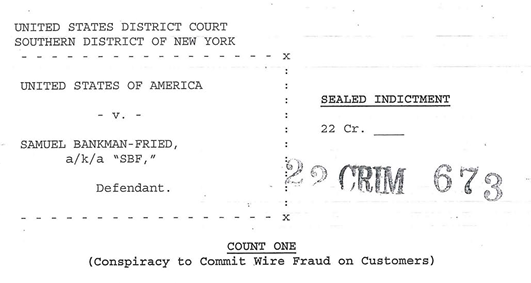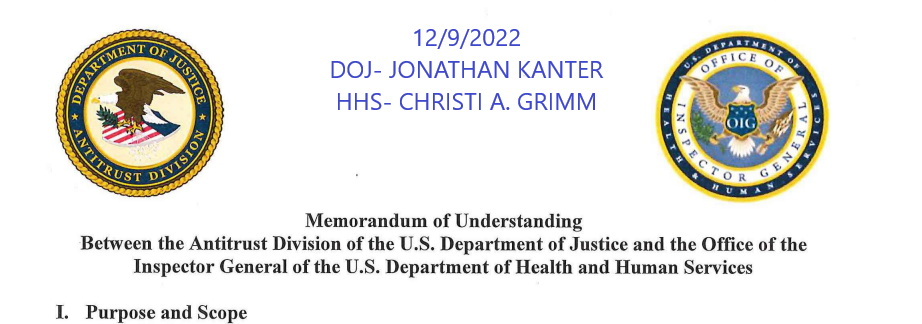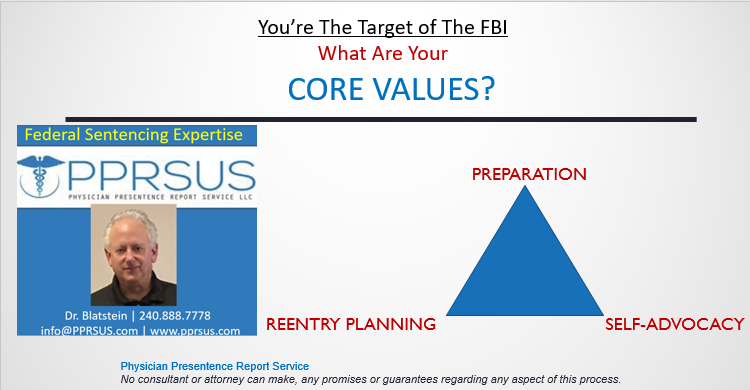DOJ and HHS Enforcement White-Collar Task Force
You suspected that you were an FBI Target, but just not convinced,
First, is getting a great WHITE-COLLAR criminal defense attorney, whom you trust, then you have,
Two options; Trial or Plea.
· Trial (or Plea): The costs could easily exceed $100, 000 ++
· Trial: While the goal is to win, understand that should you lose,
· Here The US Attorney will request a longer sentence (payback!) –
· But if you and your attorney are Confident – Stay Strong!
GUILTY
The probation officer controls your future. They conduct your interview, draft the presentence report, and can sway the court regarding your sentence length and placement.
Preparation for your Presentence Interview (PSI) cannot be overstated, your future depends on it.
· First contact. After “guilty”, it’s helpful for your attorney to
· connect with your Probation Officer, to
· learn the date for their “dictation deadline”, which is the date that their Presentence Report (PSR) draft is due to their supervisor,
· plus the date for your interview.
- This provides the opportunity to get your ‘message’ to the officer
- before they speak with the prosecutor or
- Read online, which is biased against you.
· Generally speaking, when working with the probation officer, a little extra effort goes a long way.
- Consider presenting your entire view of the case, clearly in a letter to the PO as soon as possible.
- If you feel the PO is receptive to a variance, this may be key to convincing the court to consider a sentence below the guideline range.
- Consider presenting your entire view of the case, clearly in a letter to the PO as soon as possible – getting your message “on the record”.
- As Probation Officers are very busy, doing their best, and never have enough time, they may actually appreciate your efforts in easing a portion of their workload,
- Remember, a little thoughtful effort does go a long way.
The Probation Officer (P.O.) will write the official Presentence Report (PSR), and with it,
· The Judge will determine the length of your sentence.
· The Bureau of Prisons Administration uses the same PSR to place or designate you in a prison.
- Your Unit Team, Case Managers, Psychologists, and Medical will refer to it throughout your stay.
- Visitation is determined by it
Are you happy about the DOJ Narrative Story they have released to Google about you,
No,
Then start working on your
Personal Narrative, it’s your chance to explain your narrative to the Judge.
1st. Express remorse for the victim(s), understanding their pain, suffering, and how it has impacted them.
2. Agree with the court as to the seriousness of the crime, without minimizing it. Expand on this topic
3. What in your life brought you to this moment, what happened that caused you to do this?
a. You can expand on this, with salient points from your childhood, while,
· Get feedback from a consultant, attorney, or someone with this skill
· If there was a “trigger,” what was that trigger, and how do you remove it from your life?
· It will be a slow start, but when complete, you will be a different person, with a unique Personal Narrative or Story to tell directly to the Judge.
· It is now Your Story, Unique and Honest.
4. What has this experience taught you? Did it bring up moments from your past?
5. Explain to the Judge that you have a plan (ONLY IF YOU DO) to start making this right with those you have victimized
6. What is your plan to never re-offend, and you will NEVER Be Back Again In Their Courtroom?
Meanwhile, you have been,
1. Collecting copies of your medical records
· Hospital, laboratory, radiology, physician, surgical, prescription, and medical devices.
· As all of these take time, medical practices are also very busy – so don’t wait.
2. Other records:
· Educational, military, character, community service, work references, original birth certificates, social security card, license, etc, and, you get the picture.
3. Of significance to your life in the BOP;
· Bottom Bunk: Past medical history of Tinnitus, vertigo, or back problems.
· Diabetic Soft Shoes, Sneakers Instead of Rigid Institutional Boots: Past medical history of a torn Achilles heel, knee, or hip issues
· Being of a certain age / Having weight, or a Hernia issue: could result in getting passes of “no standing for prolonged periods” and/or “no lifting over 15 pounds,” helping you escape some of the crappier work assignments.
· “Medical idles,” which get you out of everything, are also available, either short or long-term, for various ongoing ailments (ranging from a bad hip to PTSD).
Once the PSR is done, these can/should be checked for accuracy
PREPARATION: The PROBATION INTERVIEW (FORM) starts out with; can you explain what happened, and then follow a format similar to this outline, which could include:
VICTIM IMPACT: The chance for victims to speak
OFFENSE CONDUCT STATEMENT: Review for accuracy
USSC CRIMINAL HISTORY: A scored calculation based on criminal history
USSC OFFENSE LEVEL/CONDUCT: A scored calculation based on your current charges.
OFFENSE LEVEL/CONDUCT VS CRIMINAL HISTORY
PUBLIC SAFETY FACTORS vs MANAGEMENT VARIABLES: BOP placement guidelines
OFFENDER CHARACTERISTICS: Through conversation, the officer learns who you are. Saying nothing leaves ‘all’ including the court to believe what the DOJ has released to the press is 100% true. If Not, THEN THIS IS YOUR TIME TO TO WRITE YOUR STORY/NARRATIVE AND PROVIDE YOUR PERSPECTIVE
FAMILIAL HISTORY: Married – Children – parents’ responsibilities and sole caregiver
DEFENDANT’S PHYSICAL CONDITION: Medically documented bad Back-Hip-Knees-Shoulder could provide you with a Bottom Bunk. Diabetic, Vascular Disease, Raynaylds could allow the Medicare soft shoe or sneakers.
MEDICAL/PHYSICAL HEALTH, MENTAL AND EMOTIONAL HEALTH: Include ALL medical records, Labs, Surgery Reports, X-ray – CT-MRI-Ultrasound-Pet Scans (in Written and CD Format), Prescriptions for medications (Check Generic Medication Availability), and medical devices, along will ALL physician contact information.
SUBSTANCE ABUSE: Alcohol, Drug (Legal or Illegal), within the previous 12 months before the arrest. RDAP allows up to 1 year off the sentence. They may do a Urine test.
EDUCATION AND VOCATIONAL SKILLS: Copied of the highest level, otherwise a GED will be required in prison. If you have experience in/with computers, administrators frown on these skills, so you may want to reconsider using these.
MILITARY: Copies, branch, discharge?
EMPLOYMENT: The PO will check. Judges love a good work record/history
STATEMENT FINANCIAL RECORDS: If there are financial fines/restitution, Congress and The BOP now require a Financial Responsibility Plan to benefit from all Earned Time Credits and access to Programming. Therefore if the events allow, counsel could ask that the court writes into the record that payments should only start after release from the BOP.
· Financial Responsibility Plan (FRP). If you have a hefty fine or restitution, and money is a problem, the BOP ‘FRP’ Program requires participation. If you refuse, this could hinder your involvement in PATTERN Programs’ efforts towards early release and Halfway House along with restricting some of your commissary use.
It may help if your attorney could ask the judge to write into the order, that the defendant does not have to participate in the Financial Responsibility Plan until after they are released from the BOP, as they have a job and will then be able to make payments at that time.
Otherwise, be proactive, and at your first team meeting, offer what you can ($0.00/month) towards your FRP account. Be aware that at your next team meeting, they will know exactly how much money you have spent, and it’s too early to create a bad – first impression.
12/17/2022, I learned today that a Judge recently put into their “Order”, that the defendant has to pay $25/quarter.
ADDITIONAL DOCUMENTS THAT LIKELY WILL BE NEEDED
· Birth or baptismal certificate
· Divorce decreeDraft registration card Immigration papers or passport
· Employment verification (pay stubs)
· Income tax reports for the last three years
· Letters of (CHARACTER) recommendation
· Marriage certificate Car registration papers
· Medical reports (if presently under a doctor’s
· Military disability information (C-number)
· Military discharge certificate
· Naturalization papers
· Professional papers (COPIES: Social Security Care, Drivers Lic., certificates, licenses, or Seaman’s papers permits)
· Proof of residence (rent receipts, property and Union, lodge, or club cards mortgage papers, etc.)
· School diplomas
OFFICIAL PRESENTENCE REPORT REVIEWED FOR ACCURACY – BEFORE SENTENCING HEARING
But even if all things are done right, the Judge may still not change your sentence and placement – even so,
Your Narrative is now part of your Reentry Planning – helping you through the BOP, FSA Programming, and into Halfway House as you work towards early release




